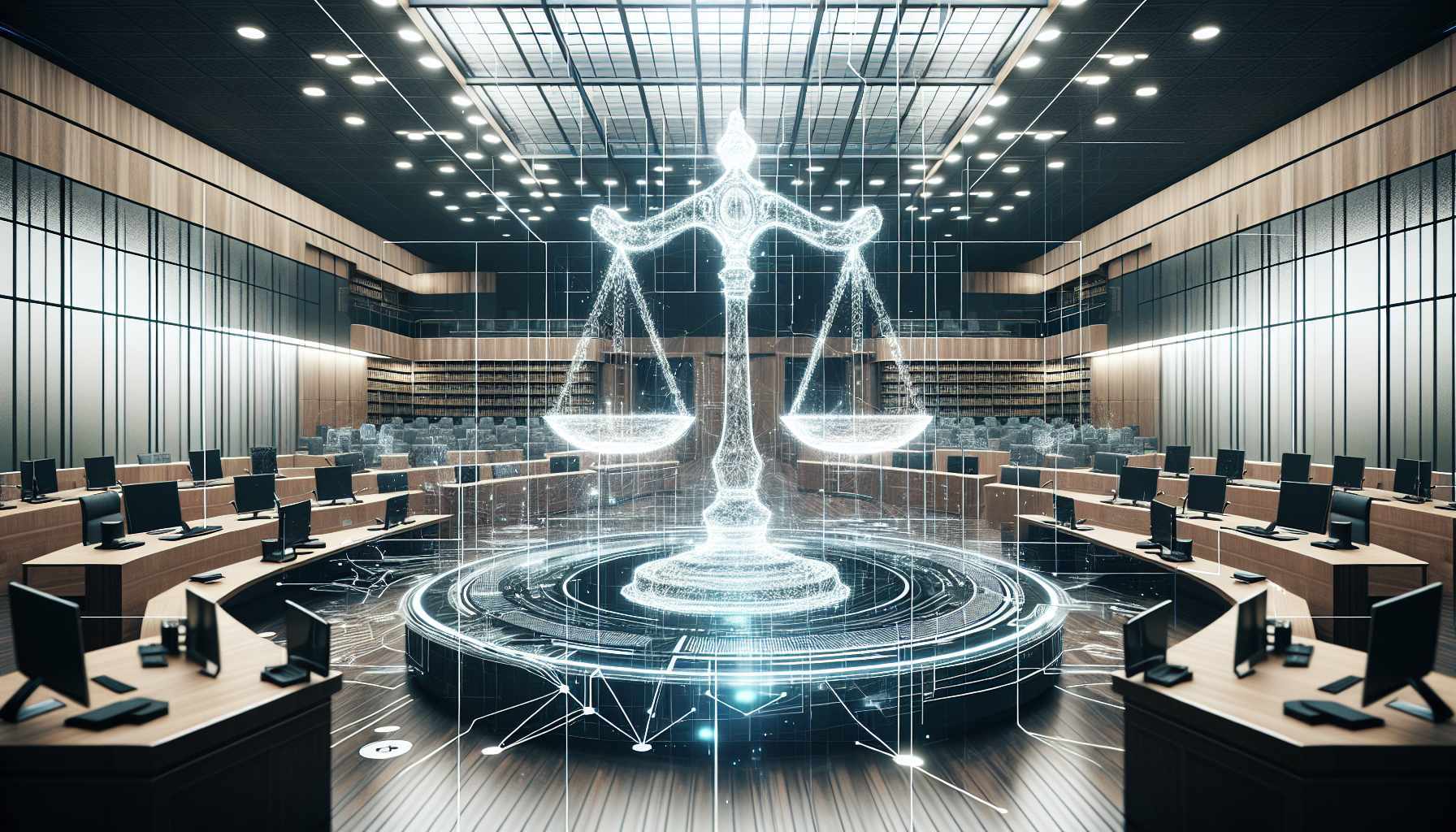
Starting with the Right Foot: Understanding ChatGPT’s Capabilities
As legal professionals navigate the complex landscape of domestic violence defense, leveraging AI tools like ChatGPT offers a substantial advantage. ChatGPT can assist in a variety of ways from legal research to drafting initial documents. Understanding its strengths and limitations is crucial for effective application.
ChatGPT excels in quickly generating comprehensive research reports, summarizing statutes, and identifying case law. However, it’s vital to recognize that ChatGPT operates based on pre-existing data and cannot provide real-time updates or replace critical legal judgment. Additionally, ethical considerations should never be overlooked, including maintaining the confidentiality and security of client information.
Recognizing and leveraging these capabilities effectively sets the foundation for crafting robust defense strategies. With this framework, we can now explore how to make the most of ChatGPT through effective prompts.
The Art of the Prompt: Crafting Effective Inquiries
The outputs generated by ChatGPT are only as good as the prompts you provide. Effective question framing is key to eliciting accurate and relevant responses, thereby maximizing the tool’s utility.
- Clearing Specificity: Ensure that prompts are detailed and specific to extract thorough responses.
- Context Matters: Always provide necessary context for the prompt to generate relevant answers.
For instance, instead of asking “Explain domestic violence case law,” a more effective prompt would be, “Summarize recent landmark domestic violence cases in California, focusing on self-defense claims.” This fine-tuned query ensures you receive focused and actionable insights.
Let’s look at another example:
- Ineffective: “What does the law say about restraining orders?”
- Effective: “Summarize the legal criteria for granting restraining orders in New York, with references to relevant statutes.”
By skillfully crafting prompts, you can unlock ChatGPT’s full potential, setting the stage for efficient legal research.
Also read:
Speeding Up Legal Research: Leveraging ChatGPT for Case Law and Statutes
Once you’ve mastered the art of the prompt, the next step is utilizing ChatGPT for expedited legal research. Its ability to sift through countless documents and case laws can provide a significant edge.
- Finding Relevant Case Law: Prompt ChatGPT with specific case details or jurisdictions to narrow down relevant case law swiftly.
- Interpreting Statutes: Use ChatGPT to interpret statute language and summarize legal provisions accurately, ensuring a clear understanding of applicable laws.
For example, ask: “Identify major appellate decisions affecting the admissibility of evidence in domestic violence cases in Texas.” This directs ChatGPT to provide concise summaries of pertinent rulings.
Moreover, you can use it to cross-reference multiple statutes quickly. Input a prompt such as, “Compare and contrast the domestic violence statutes of Florida and New Jersey,” to receive a comparative analysis across jurisdictions.
This efficiency in legal research empowers attorneys to focus more on strategy and less on time-consuming data accumulation.
Also read:
Drafting Documents with Precision: Using ChatGPT for Legal Writing
Effective legal writing is a cornerstone of compelling defense strategies. ChatGPT can significantly streamline the process by generating initial drafts of motions, briefs, and pleadings.
- Initial Drafts: Utilize ChatGPT to create structured drafts which can then be refined to suit specific case needs.
- Language and Style: Ensure stylistic consistency by prompting ChatGPT to adopt a specific legal writing style.
For instance, you could start with: “Draft a motion to dismiss based on lack of evidence in a domestic violence case.” Or, “Generate a draft brief supporting a claim of self-defense under California law in a domestic violence case.”
After generating the draft, attorneys can focus on refining language, ensuring precision, and incorporating additional case-specific details. This dual approach allows for both efficiency and robustness in legal document preparation, seamlessly transitioning into client communications.
Also read:
Exploring Nuances: Crafting Client Communication and Interview Questions
The success of a domestic violence defense often hinges on effective communication with clients. ChatGPT can aid in crafting empathetic and comprehensive interview prompts to gather critical information.
- Developing Client Prompts: Create lists of tailored questions that address the sensitive nature of domestic violence cases.
- Thorough Information Gathering: Ensure that questions cover all aspects of the client’s situation and legal needs.
For example: “Provide a detailed list of questions to ask a client who claims self-defense in a domestic violence case.” This prompts ChatGPT to offer nuanced, empathetic, and thorough inquiries, ensuring no detail is overlooked.
Such thoroughness not only builds a stronger defense but also fosters a trusting attorney-client relationship, paving the way to strategically outline case defenses.
Also read:
Building a Defense: Use ChatGPT for Creating Strategy Outlines
With comprehensive information at hand, structuring a coherent defense strategy becomes the next crucial step. ChatGPT can assist in organizing these elements effectively.
- Structuring Outlines: Use ChatGPT to generate structured defense outlines, identifying key legal points and evidence.
- Logical Coherence: Ensure a logical flow in argumentation, enhancing persuasiveness and clarity.
An efficient prompt might be: “Draft an outline for a defense strategy focusing on self-defense in a domestic violence case involving a restraining order issue.” This initiates a clear framework for further development.
By structuring these outlines, attorneys can easily visualize their defense approach, ensuring all aspects are aligned. The next step involves meticulous fact-checking and evidence management.
Also read:
Fact-Checking and Evidence Management: ChatGPT as Your Virtual Assistant
An accurate and well-managed body of evidence is essential for any defense. ChatGPT facilitates quick cross-referencing and verification of facts, bolstering the defense strategy’s credibility.
- Cross-Referencing Facts: Use ChatGPT to quickly verify statutory and case law references.
- Organizing Evidence: Efficiently manage and categorize evidence based on relevancy and strength.
An effective prompt could be: “Verify and summarize the evidence requirements for self-defense claims in domestic violence cases, referencing key statutes.” This streamlines the fact-checking process, ensuring all evidence is scrutinized and well-organized.
Such rigorous management and verification make it easier to navigate ethical considerations, safeguarding client data throughout the process.
Also read:
Ethical Considerations: Ensuring Compliance and Confidentiality
Incorporating AI into legal practice brings forth unique ethical considerations. It is imperative to understand and navigate these responsibly.
Maintaining confidentiality and data security is paramount. Ensure that client data is encrypted, and access to ChatGPT is controlled. Avoid disclosing sensitive information in prompts and always verify the accuracy of AI-generated outputs.
By adhering to these ethical guidelines, attorneys can effectively utilize AI while protecting client interests, preparing for the evolving role of AI in legal practice.
Also read:
Future Possibilities: The Evolving Role of AI in Legal Practice
As AI technologies continually advance, their integration into legal practice is set to deepen. Emerging trends indicate more sophisticated tools for predictive analysis, enhanced research capabilities, and automated compliance checks.
Staying abreast of these developments and adapting to new tools will be crucial for maintaining a competitive edge. As AI continues to evolve, so too will the strategies for leveraging these technologies, reshaping the future of legal practice.


